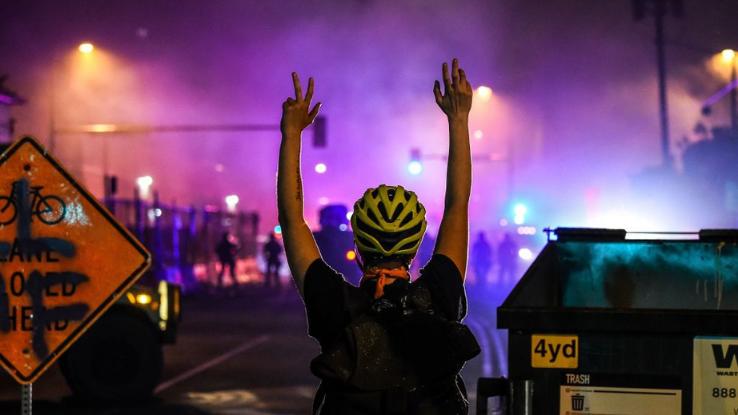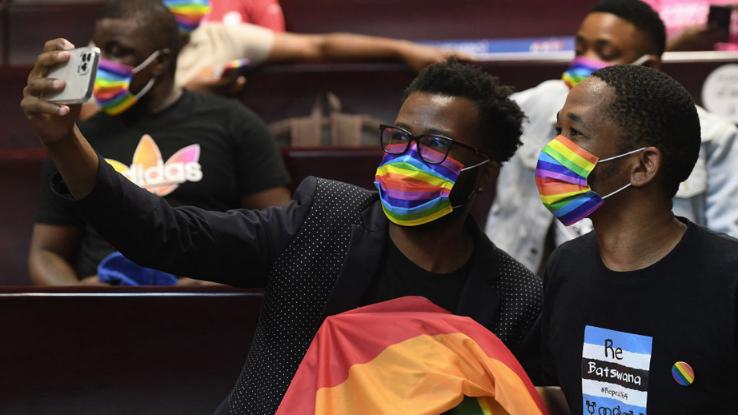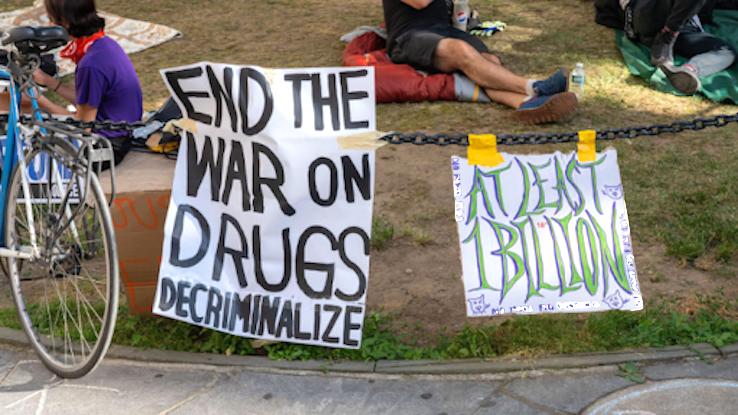What Does It Mean to Decriminalize a Law?

In 2020, Oregon residents made a monumental choice during their fall election. They passed Measure 110, a bill that decriminalized small amounts of drugs — not just cannabis, which the state had already done, but drugs like cocaine, heroin and methamphetamine. As a result of this vote to decriminalize, people in Oregon who possess controlled substances no longer face misdemeanor charges and jail time. Instead, they receive a citation, a $100 fine and a health assessment.
Throughout history, different goods, substances, sexual orientations and levels of voting access that we now recognize as lawful were once considered illegal. Most legal systems in developed nations alter and update laws regularly to reflect changing societal values. Countries and communities are always adapting to the developing world, and sometimes these shifts start with decriminalizing certain activities.
Decriminalization, however, goes beyond the case of Oregon and others like it. When there’s a chance that a piece of legislation could decriminalize something, it can affect millions of lives economically and socially. Here, we’re breaking down decriminalization, including what it is and why it matters.
Decriminalization and Legalization Aren’t the Same Thing

A good way to look at decriminalization is to look at what it’s not: legalization. When something becomes legalized, that means it was previously illegal but the laws were changed to fully allow it. Although decriminalization might sound similar, it doesn’t involve legalization. When something is decriminalized, it can still be considered illegal. But, its penalties are scaled back significantly and a person may not be prosecuted for it.
Some of Oregon’s laws illustrate these differences well. Before the 1970s, possession of marijuana in Oregon was illegal and carried stiff criminal penalties. In 1973, residents voted to decriminalize cannabis, and the penalty dropped down to a fine of anywhere from $500 to $1,000. The decriminalization process turned possession of certain amounts into a civil infraction from a criminal one. Decades later, Oregon residents voted to fully legalize cannabis for recreational use. Now, it’s not a punishable offense to buy, possess and use marijuana in Oregon under most circumstances. Other states with strict penalties for drugs may look to Oregon as an example when reexamining their own policies.
Decriminalization also exists on a spectrum. Outside of drug possession, other actions, like breastfeeding in public spaces, have also been outlawed in the U.S. Breastfeeding in public was not legal in all 50 states prior to 2018. Only thirty-one states, however, have laws that protect people who breastfeed in public against charges of indecent exposure. In some places, breastfeeding is only permitted in designated areas. In other states, people won’t be prosecuted for breastfeeding because it’s been decriminalized. Breastfeeding is an instance of different areas’ laws existing on a spectrum between decriminalization and legalization.
“Decriminalize” isn’t the opposite of “legalize,” either, but the two ideas are related to each other — something’s decriminalization could lead to its legalization. Decriminalizing an activity like breastfeeding or possessing cannabis can give experts and lawmakers time to observe how society responds after the change. This information allows them to decide whether they should propose legalizing the action.
Not everything that gets decriminalized will become legalized, though. Take fireworks, which have slowly been legalized in 46 states, as an example. In three of the states where fireworks are illegal, small explosives and sparklers are still allowed. Firework laws are so varied across the U.S. that they’re different from city to city, and municipalities have been simultaneously decriminalizing — and criminalizing — possession of them for years. Even products like this are a part of the decriminalization spectrum.
Decriminalization also impacts social issues. Some countries criminalize LGBTQ+ relationships and identifications, considering them punishable offenses. There have been laws against LGBTQ+ expression across the world throughout history — in the U.S., in Great Britain and on every continent on the world except for Antarctica. In 2021, Botswana decrimininalized laws that previously made what its legal system deemed “queer behavior” illegal. Marriage and other legal recognition of queer relationships hasn’t taken place yet in Botswana, but in this case, decriminalization is an important first step that may lead to future legalization.
Decriminalization Has Far-Reaching Impacts on Society

Decriminalization has the potential to result in sweeping social and economic changes. The United States has the highest incarceration rate in the world, with over 2 million people serving prison sentences in the U.S. in 2021. The American advocacy group The Sentencing Project argues that crime rates aren’t the reason for the massive prison population in the U.S., but that the laws and sentencing that determine criminal acts lead to higher incarceration rates. When a nonviolent, “victimless” crime — one that doesn’t cause any harm or injury — results in a felony charge and a minimum sentence, that harsher punishment creates overcrowded prison situations.
But when that nonviolent crime is reclassified and decriminalized, it keeps families together, prevents job loss and reduces the need for states to direct funding towards prisons. The Marshall Project estimates that prisons cost taxpayers $80 billion annually — money that could fund infrastructure, healthcare, the military or other vital efforts if certain laws were decriminalized and fewer people ended up in prison as a result.
Decriminalization can also affect public health. When Portugal decriminalized drugs in 2001, the country saw drug overdoses, community-acquired infections and drug-related crimes plummet. Studies suggest that decriminalizing controlled substances also makes it easier for people to access addiction treatment resources and places less stress on healthcare and legal systems. Loosening up the penalties on certain laws by decriminalizing can save lives.
Economies are affected by the decriminalization of laws in ways beyond the cost of prisons, too. For example, the freedom to breastfeed in more spaces frees up a person to continue working or supporting the economy or their community in a different way. Critics of illegal fireworks argue that people can easily travel to different states and buy them there. That person may also buy gas, lunch and more while traveling, contributing more money to a non-local economy.
Laws have a strong influence on economies in both bigger and smaller ways. They’re also a steering wheel for communities. When something is decriminalized, there’s greater potential for a more equitable future for a given area. Sometimes it’s a great first step, and sometimes it’s a “wait and see” situation — something important to think about the next time you’re filling out your voting ballot.





